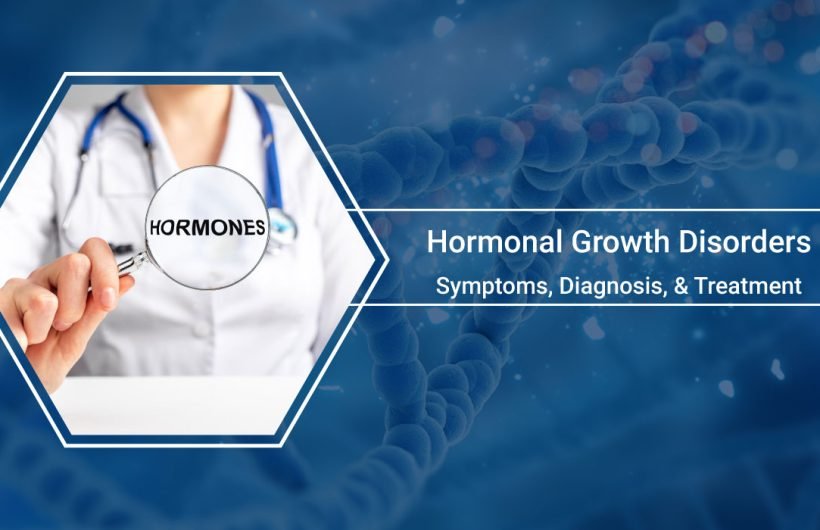Hormonal growth disorders, particularly growth hormone deficiency (GHD), can significantly impact an individual’s physical development and overall well-being. In this comprehensive blog, we will delve into the symptoms, diagnosis, and treatment options associated with hormonal growth disorders, focusing on the specific aspects of growth hormone deficiency. Let’s embark on a journey to unravel the complexities of these disorders and explore the avenues for effective management and treatment.
Hormonal Growth Disorders: An Overview
Hormonal growth disorders encompass a range of conditions that disrupt the normal production and utilization of growth hormones in the body. One of the most prevalent disorders in this category is growth hormone deficiency (GHD). GHD occurs when the pituitary gland fails to produce an adequate amount of growth hormone, stunting the individual’s growth and development.
Recognizing the Signs: Growth Hormone Deficiency Symptoms
- Short Stature: One of the primary indicators of growth hormone deficiency symptoms is a noticeable short stature compared to peers of the same age group.
- Delayed Puberty: GHD can also manifest as a delay in the onset of puberty, affecting the development of secondary sexual characteristics.
- Reduced Muscle Mass and Increased Fat Accumulation: Individuals with growth hormone deficiency symptoms may experience a decrease in muscle mass and an increase in fat accumulation, affecting overall body composition.
- Impaired Cognitive Function: Some studies suggest a correlation between GHD and cognitive impairments, emphasizing the importance of growth hormone in neurological development.
- Emotional Well-being: GHD can impact emotional well-being, contributing to feelings of social withdrawal, anxiety, or depression.
Shedding Light on Diagnosis
Accurate diagnosis is crucial for effective management of growth hormone deficiency. Healthcare professionals employ various methods to assess hormonal levels and identify underlying causes.
- Growth Hormone Stimulation Tests: These tests involve administering substances that stimulate the release of growth hormone, allowing healthcare providers to measure the body’s response.
- Insulin-Like Growth Factor-1 (IGF-1) Testing: IGF-1 levels correlate with growth hormone levels and serve as a reliable indicator for evaluating growth hormone deficiency.
- Magnetic Resonance Imaging (MRI): In some cases, imaging studies like MRI help identify structural abnormalities in the pituitary gland that may be causing GHD.
Navigating Growth Hormone Deficiency Treatment Options
- Growth Hormone Replacement Therapy (GHRT): GHRT involves the administration of synthetic growth hormone deficiency treatment to compensate for the deficiency. This targeted treatment aims to promote normal growth and development.
- Monitoring and Adjusting Treatment: Regular monitoring of hormone levels and adjusting treatment plans accordingly are crucial aspects of managing GHD. Healthcare providers may alter dosage based on individual response and growth patterns.
- Lifestyle Modifications: Adopting a healthy lifestyle, including a balanced diet, regular exercise, and adequate sleep, complements growth hormone replacement therapy and contributes to overall well-being in growth hormone deficiency treatment.
- Psychological Support: Recognizing the emotional impact of GHD, psychological support, and counseling play a vital role in helping individuals cope with the challenges associated with growth hormone deficiency.
Conclusion:
In conclusion, understanding hormonal growth disorders, with a specific focus on growth hormone deficiency, is pivotal for early detection and effective management. By recognizing the symptoms, undergoing timely diagnosis, and exploring appropriate treatment options, individuals with GHD can lead fulfilling lives. The journey through hormonal growth disorders may be complex, but with advancements in medical science and holistic approaches, the path to optimal growth and well-being becomes clearer. You can get such adherence to treatment plans and monitoring by getting in touch with Dr. Moxit Shah, a well-known endocrinologist who specializes in the diagnosis and treatment of disorders relating to hormones in the body as well as various forms of diabetes, which most people can effectively manage.







